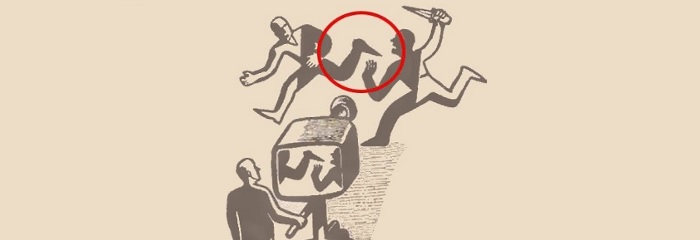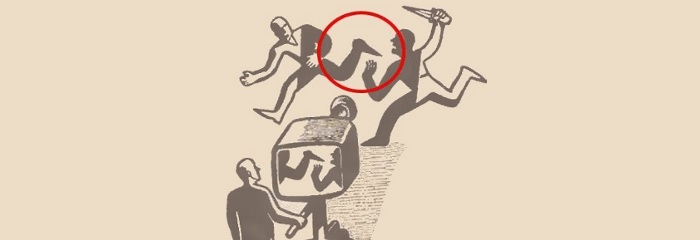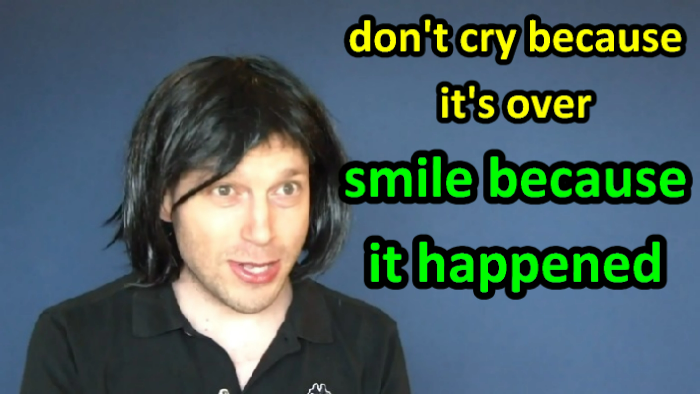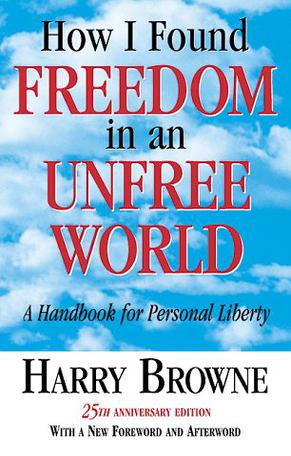I feel super happy and blessed because February 13, 2015 I had eye surgery with laser to correct my myopia and now I see! My eyes work!
 If like me you have been myopic for an entire life, and also with a quite high degree of myopia (I had 5.75 myopia at the right eye, 6.00 myopia + 0.25 astigmatism at the left eye), you can probably understand why this seems like a miracle to me. I’ve been using glasses -which I’ve always hated- and contact lenses since I was a teenager, and now all of a sudden I just open my eyes in the morning and I see everything around me! It makes me so happy, and I feel lucky and grateful that it worked so well.
If like me you have been myopic for an entire life, and also with a quite high degree of myopia (I had 5.75 myopia at the right eye, 6.00 myopia + 0.25 astigmatism at the left eye), you can probably understand why this seems like a miracle to me. I’ve been using glasses -which I’ve always hated- and contact lenses since I was a teenager, and now all of a sudden I just open my eyes in the morning and I see everything around me! It makes me so happy, and I feel lucky and grateful that it worked so well.
Why I did it in Barcelona
I decided to have the surgery at the Corachan clinic in Barcelona.
While I still consider Rome as my base location, lately Barcelona has become a sort of second home for me, and this year I’m planning to spend few months here. The possibility of staying away from home, in this case even for a rather long period, is one of the many benefits I’m enjoying since I decoupled my job from where I work. I’m loving it.
The reason why I opted for having my surgery here is very simple: my friend in Barcelona Gerard had it not long time ago, so he knew a good clinic in the city, and a doctor he trusted. I could listen to his experience and understand how it worked for him. In Rome, instead, I don’t have any close friend who had this eye surgery recently, apart from acquantainces who had it more than ten years ago. But then the technology was not even as developed as it is today, and I’m not in contact with those guys anymore.
Another reason is that my friends in Barcelona encouraged me a lot. I was very scared of the surgery, even if many people consider it a routine these days, and do it without too much stress. But my friends told me many times not to focus on the surgery itself, but on the idea of having my eyesight back. This has been, for me, a big motivation to overcome the fear.
In addition, I must admit that not having my family around was also a bonus in this case. They’re wonderful, but in a situation like this they would have unloaded on me all their worries and doubts, and I didn’t want to add theirs to mine.
At the end, I just decided to have faith that everything would have gone well.
First appointment: the preliminary exams
In my previous trips to Barcelona I flirted with the idea of having the surgery, discussing the intention with my friends and gathering information. But since those were typically short trips (few days to few weeks) there was never a real chance to concretely start the process. This time instead, since I’m staying for so long, the chance appeared.
So I told myself “Ok, let’s just do the preliminary exams at the clinic and see what they say. I can decide later.” After all, the exams were very cheap, and I didn’t even know if I was eligible for the surgery (not everybody is, it depends on a series of parameters, like the thickness of the cornea). Of course, inside of me I was really hoping I was eligible.
The first appointment at the clinic was January 26, 2015. I had a series of tests with different doctors which lasted a couple of hours in total, considered also the waiting times. They took my graduation, measured the thickness of my cornea, and inspected my retina. To inspect my retina they put on me those eye drops that dilatate the pupil, and the effect lasted well over the duration of the visit. In fact, for three days my eyes were almost all pupil and no iris, making me look like a drug addict!
As it turned out, the results of the exams were good. My myopia was within the limit that can be treated with lasik (that’s the name of the laser used to correct the vision’s defect), which is around 8 degrees. My cornea had a good thickness, and therefore a thin layer of it could be vaporized to reshape the eye lens. My retina was healthy too. As the doctor said: “Your eyes are in very good shape. They’re just the typical myopic eyes.“.
Second appointment: meeting with the doctor
The second visit was February 3, 2015. I talked with the doctor who was going to perform the surgery on me, doctor Carlos. He was very nice and professional, like everyone else I met in the clinic.
The doctor didn’t make any test this time, apart from measuring my eye pressure. Instead, he explained how the surgery was going to work, the times, the recovery process. He made everything sound very easy, as it eventually was. He answered few of my questions and then checked the results of my previous exams, confirming that the surgery was possible. Great.
At that day, I already knew the basic functioning of this refractive surgery. First, a flap in the cornea is created and lifted (similarly to when you open a tuna can…!), second, while keeping the flap lifted, the laser called lasik is applied to a deeper layer of the cornea. For myopic eyes like mine, lasik vaporizes a thin layer of corneal tissue (“ablation”) to reshape the lens of the eye, positioning the focus of the images exactly on the retina.
The fun thing is that, probably with educational intent, in the doctor’s office there was a tv on a wall showing one of these eye surgeries. So while I was listening to him talking, behind his shoulders I had this eye in the screen, wide open, that was being treated. I am very, very uncomfortable with those videos! There are many also in Youtube, but I’ve never been able to watch more than few seconds, because I find them super creepy. My cornea is going to be opened like a tuna can? Fine, but don’t make me see how you’ll do it! Fortunately the doctor turned the tv off, to help me relax.
At this point I had already decided to go on, and have the surgery.
The doctor proposed me two different options for the surgery, regarding how the corneal flap is created. This put a little extra stress on me, because I was actually hoping not to have to decide anything about the procedure.
The first option was the microkeratome: the cut on the cornea is done with a mechanical blade. The second option was the femtolaser: in this case there is no blade involved, but also the cut is done with a laser. So, with this second option, the surgery would consist of lasers only: the femtolaser to create the corneal flap, and then the lasik to ablate the internal tissue.
The doctor explained me that both techniques usually have very good results, so I shouldn’t have worried a lot about this choice. The microkeratome has been around for many years and it’s a bit cheaper. Many people have perfect results with it. The femtolaser, on the other hand, is gradually becoming the new standard. It helps creating more precise flaps and it’s a bit more expensive.
I heard about the femtolaser’s technique already some years ago, so the first instinct was in its direction. Also, psychologically, the idea of my cornea being cut by an impalpable laser felt much better than the idea of some hard blade. In the next two days at home I searched a little in internet the comparison “microkeratome vs femtolaser”, and the results seemed to converge in favor of the femtolaser.
These was the difference of price, of course, but it really didn’t justify going for the option that I considered the less attractive. For something as important as my eyesight, I would have been very happy to spend even 100 times more, if somehow that could have given me the guarantee of good results in advance.
So it was decided, the first session available was ten days later: a friday 13. I booked it.
Third appointment: the surgery
February 13, 2015 arrived. My appointment was at 10.00 am.
As recommended by the clinic, the day before I had used antibacterial wipes on my eyelids, and taken the first eye drops of a long series. By my own initiative, I was also coming from two days of a healthier-than-usual diet (zero refined carbs, and lots of colored fruits and vegetables), to have my body as in good shape as possible. I felt ready for the surgery, and not even as nervous as I thought I would have been.
But there was a trick: the mirage of the Valium was boosting my courage.
Valium is a psychoactive drug, one that people take to calm anxiety or panic attacks. During my first conversations on the topic with Gerard, I discovered that he took Valium before his eye surgery. He said he felt fantastic with it: “I was singing in the metro going to the clinic for my surgery, completely relaxed!“. I thought that it would have been great to be in the same state for my own surgery, because for me this was such a “big thing” that I thought I could have been excessively tense in a non-sedated condition.
I also found that I could have got the Valium directly from the clinic, on the day of my operation. I immediately decided I wanted it. In general I am very adverse to pshychoactive drugs and I’ve never taken one before in my life, but this time it seemed just fine to be in a lower status of consciousness and let the doctors do what they had to do. Basically, it was the idea itself, the idea that I would have been sedated during the surgery, that helped me a lot in the morning not to become anxious, while I was heading to the clinic.
In fact, it turned out that the Valium was useful, but mostly as a placebo. While I was waiting for my turn at the clinic, I had already succeeded in enterering a “state of grace”, and I was already feeling very calm before taking the drug. I swallowed the pill anyway (approx. fourty minutes before the surgery), but I really didn’t notice any shift in my mood, or in my state of relaxation.
There were something like 7-8 people having eye surgery in the same session. I realized that this surgery is basically done in pipeline these days.
I went in around 11.20 am. First, an assistant doctor checked my graduation again. Then I waited for ten minuted in a room, where they put some drops on my eyes, probably the anesthetic. I think they were calibrating the machines in the meanwhile, because I was the first patient that day having the surgery with the femtolaser.
I finally entered the surgery room, where 4-5 people were busy around the machines, coordinated by doctor Carlos. The procedure itself lasted around ten minutes. I laid down in a bed, face up, and they operated my right eye first. All I could see then was through my right eye, because I had a paper mask on my face with a single opening just in corrispondence of that eye.
In the first phase (the creation of the flap on the cornea) I felt something like a circular frame being laid down on my eye, applying some pressure. Then the flap was created, but I really didn’t understand much. All I was seing were white lights, moving. After that part was completed, the bed where I was lying was shifted under a second portion of the machine, and there the actual correction of my myopia happened with the lasik.
They had instructed me to look at a “red light” while the lasik was in function, and that’s what I did for few minutes. I was expecting a red dot, instead there were two lights: red and green. And they were dispersed lights, rather that sharp points. This part lasted around three minutes, during which I diligently kept on following the light in movement. I could definitely tell that my cornea was being vaporized there: it smelled of burnt!
In five minutes my right eye was done. The doctor confirmed that all went well, and replicated the procedure for my left eye. Everything went exactly the same way, the only difference is that this time I felt more pressure applied to the eye in the first phase, the creation of the flap on the cornea, and that felt a bit uncomfortable, slightly painful. For the rest, the procedure was really identical.
Out of the surgery room
Right after the surgery, I opened my eyes and I was already seeing. And I was seing precisely the way the assistant who introduced me to the surgery room had anticipated: “You’ll see well, but with a sort of cloud in front of you.“. Yes, I had the cloud. But I could tell that beyond that cloud things were already looking much better than before.
I was super happy! There was just a little bad news waiting for me at check-out: they didn’t make a video of my surgery! I was really hoping to get the record of it, and I thought the record was done by default for every surgery. Instead I found out I should have asked for it in advance, something I had not done. Pity!! According to my friend Gerard, during one of the previous visits they even asked me if I wanted the video, and he says that I replied no. -_- I honestly don’t remember that ever happening, but if that is the case, it would be a great trophy to how crappy my comprehension of the Spanish language still is.
Anyway, all was done. I got out of the clinic, happy and relieved. Since there was no sun that day, I could already walk in the street without even using sunglasses. Everything seemed so easy, and when my friends proposed that maybe we could have stopped for a coffee before returning home, I was like “Sure, why not! Let’s search for a bar in this area!“.
Ah, lovely optimism. I was still under the effect of the anesthetic. Two minutes more and I was saying “Hmm, I’m struggling to keep my eyes open. And even if I close them, it feels like if there’s too much light.“. Other two minutes and “Guys quick! Call a taxi, I want to go home right now!“.
I arrived at home with a solid headache and a strong sensation of discomfort at my eyes. I ate something, drinked water, applied several eye drops -which was challenging, considering that I was struggling to keep my eyes opened even for few seconds-. Then I taped to my face the protective goggles that I received from the clinic, to prevent unintentional scratches during sleep. In fact, I went to bed hoping to fall sleep and wake up later, without pain, but unfortunately it didn’t happen.
That afternoon, for the following 4-5 hours, I felt very bad. I kept on rolling in bed, suffering. I don’t want to make it sound too dramatic, as I actually felt even worse in other occasions when I was sick with fever. However, it was definitely not pleasant. I kept on drinking water and tried to focus on breathing while I was in bed, which I think helped a lot.
Finally, around 19.00 I started feeling better, and I even had a nap of half an hour. Then I got up, had a light dinner, put more eye drops, and then I returned in bed with my phone on my side, which was playing videos with relaxing sounds. Eventually, two or three hours later, I fell asleep. And I slept for about ten hours.
That was it. The day after I was already feeling very good, so all the post-surgery pain and discomfort were limited to the same day of the surgery. I heard stories from people who had lasik 10+ years ago, who had to stay locked in the house for days after the surgery, in the dark, with a lot of discomfort and “sand in the eyes” sensation. Luckily my recovery has been much easier than this. I guess it’s the same for a lot of people today, thanks to the advancement in the technology.
Post-surgery care
The clinic instructed me well about what to do after the surgery. My post-surgery care consisted mostly of three things: a lot of eye drops, dietary supplements, and protective goggles.
For one week after the surgery, I used eye drops with different functions: antibacterial, anti-inflammatory and lubricant. After that week I quit the first two, and continued with the lubricant only (which I am still using daily at the present, up to completing a period of three months). This has been an easy activity but it kept me quite busy, as I had to take the antibacterial and anti-inflammatory three times a day, and the lubricant five times a day.
In addition to the drops, I had a prescription for a dietary supplement, one pill a day for a month. Nutrients useful for the vision. I’ve never checked the composition of the pill in detail.
And then the protective goggles. Here’s me before going to bed, a picture I took one of the nights after my surgery:
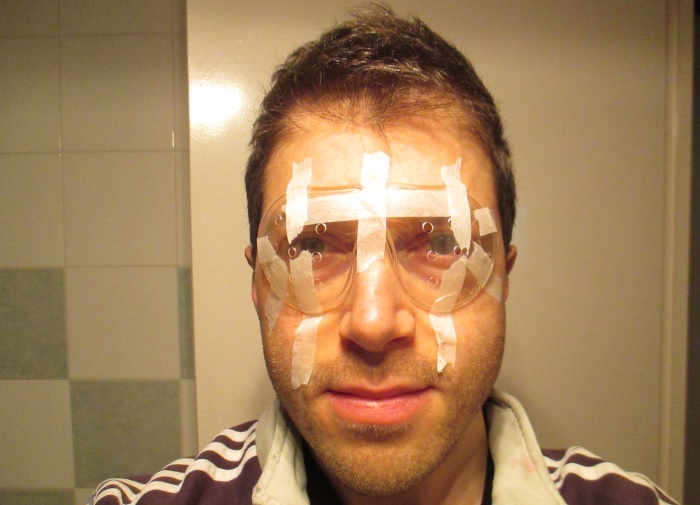 Until the cornea has healed from the wound created by the femtolaser/lasik, it’s better not to touch the eyes at all. One of the main risks is to stratch the eyes at night, unintentionally during sleep. So these goggles kept my eyes safe. They are actually two separate lenses that I taped each time to my face -with a super sticky tape- for nine nights after my surgery. The clinic recommended me to use them for one week, but I added a couple of extra nights to be cautious, as often I move around a lot in bed at night.
Until the cornea has healed from the wound created by the femtolaser/lasik, it’s better not to touch the eyes at all. One of the main risks is to stratch the eyes at night, unintentionally during sleep. So these goggles kept my eyes safe. They are actually two separate lenses that I taped each time to my face -with a super sticky tape- for nine nights after my surgery. The clinic recommended me to use them for one week, but I added a couple of extra nights to be cautious, as often I move around a lot in bed at night.
Post-surgery visits
February 14, 2015 in the morning, not even 24 hours after the surgery, I already had a first check in the clinic. I was already self-sufficient, so I went there alone with a combination of metro and taxi. Just having the ability to move independently in the city felt super! I couldn’t have done that in my presurgery life, without using lenses.
A young doctor took my graduation and inspected the surface of my eyes. There was definitely a bit of vision still missing, as I was struggling also with some letters of average size, but she confirmed that it was normal at that early stage. The surface of my eyes looked good. The visit lasted just ten minutes, and after that I returned home.
During the following days I didn’t work at all, I mostly rested, cooked, spent time with my friends, and had walks around Barcelona. I limited a lot the use of the computer and tv, and didn’t read any book. My vision was already very good, but not perfect. Probably around 90% perfect. Almost flawless with daylight, I only had some trouble with the smaller letters far away. But at night, or in darker places like the metro tunnels, I could tell that the quality of the images I was seeing was definitely worse. I had halos around lights, which I knew were a frequent post-lasik issue.
I was a litte anxious about that missing 10%. My eyesight would have improved further, or that was it? For few days I was constantly testing my eyes with signs and letters in the street, without significant improvements. The third day a little scar under the iris of my left eye appeared (or maybe I had not noticed it before). Then, fortunately, the fourth day a noticeable improvement came. Some of the street signs I was using as reference became clearer. That happened just in time for the second check at the clinic, which was five days after the surgery.
A young doctor, a guy this time, took my graduation once again. Right eye, almost perfect. Left eye, a bit lazy. I had to “guess” many letters. He reassured me, anyway, that everything was going very well, and that in the next week or two further improvements were very likely. Another doctor checked the surface of my eyes again, and again confirmed that my eyes were healing perfectly.
After this visit I was seeing around 95% perfect. I was super happy about it, definitely a great result. Anyway, here is where I started to realize that this good vision was coming mostly from my right eye, while my left eye was definitely not as good. In the following weeks my eyesight pretty much stabilized this way. Then, around week three, my left eye seemed to get slightly worse.
In the third check at the clinic, one month after the surgery, it was confirmed that I have a “souvenir” of 0.5 astigmatism at my left eye. While very happy in general about the results, I expressed a bit of concern about my left eye with the doctor, and he suggested me to have an extra visit in two of three months to check the situation again.
How I see now
Here is the situation today, five weeks after my surgery.
In general, I see very well. The improvement I had with the lasik surgery is gigantic.
My vision is not perfect. I am very aware that I don’t see as well as I did before with glasses/contact lenses.
There’s a substantial difference between how I see in the daylight and how I see at night. With daylight, my vision is almost flawless. I can read even the smallest signs far away. At night instead, or in darker places like the metro tunnels, the quality of the images becomes considerably worse. The problem is more evident with sharp contrasts, like with the street signs that are written white on black.
The difference between my right eye and my left eye remains. To me, the situation seems stable at this point, but the doctor said there is still some hope for late improvements to the left eye. We’ll see. I know that some patients do touch ups when the first surgery doesn’t produce perfect results, but I’d really like to avoid that. I feel that my cornea has already been burnt enough.
During this month, I experienced most of the post-lasik issues that are frequently reported in the various forums in internet: increased sensibility to bright lights, halos, eye floaters. Of these, the one that bothered me the most, and still does to date, is the increased sensibility to bright lights, as I was already very sensible to bright lights even before the surgery (I also have the photic sneeze reflex). But I want to remark that for me these are not important issues, when compared to the miracle of seeing again.
Another thing, that I noticed only in thast few days, is that occasionally the pupil of my left eye is bigger than the pupil of my right eye. I found that this condition is called Anisocoria. This is not causing me any particular problem, but I’m monitoring it to see if it disappears.
How I feel
In general, I am very, very happy about the results. Would I do it again? Yes.
The most important thing is that the quality of my life improved considerably. And I really feel blessed for this.
My eyes feel “fresher” than when I was using contact lenses, there’s not anymore that patina between them and the outside. Sometimes I still have the instinct of searching for glasses when I wake up in the morning, and sometimes my mind reminds me “you have to remove your contact lenses” before going to sleep, which is funny. It’s fantastic that finally I don’t need those routines anymore.
I admit that I’m a bit disappointed that my vision didn’t come out perfect after the surgery. I was really hoping to be one of those cases where they get 20/20 with the laser, but unfortunately it didn’t happen for my left eye. In my next visit at the clinic I’ll listen to what the doctor suggests about it. However, even if my vision stays like this and there won’t be further improvements, I think I can live with it. I’d rather not to stress my eye with a second surgery.
All in all, it’s surely been a positive experience, and I feel I made a good move.
Thanks
Last but definitely not least: I can’t say a thank you big enough to my friends Gerard and Roberto, for encouraging me, for helping me through the entire process, and for being there with me the day of the surgery. And a thank you from the heart to Cristina, for assisting me like a mother when I was feeling bad after the surgery, checking that I had everything I needed.
You’re really awesome guys.


